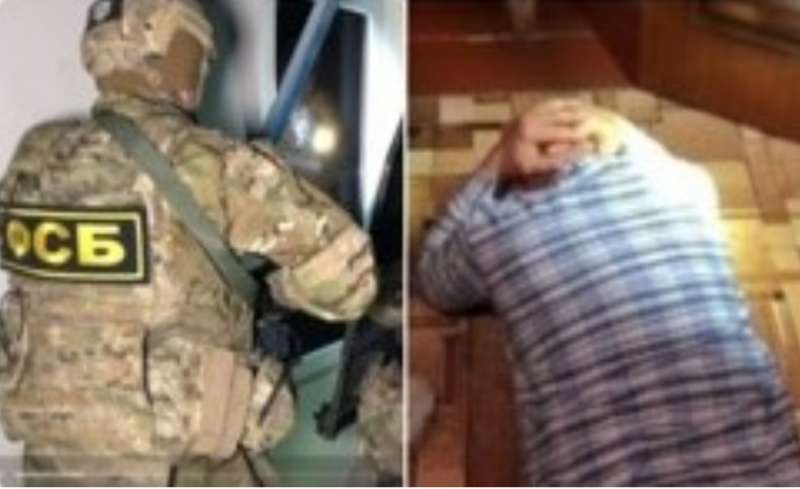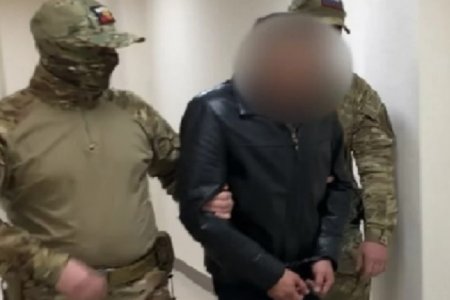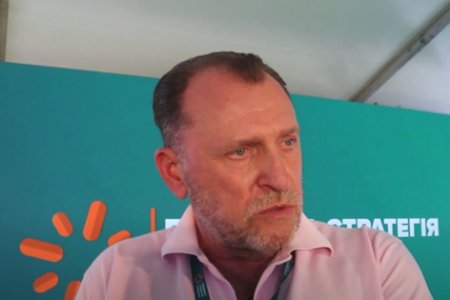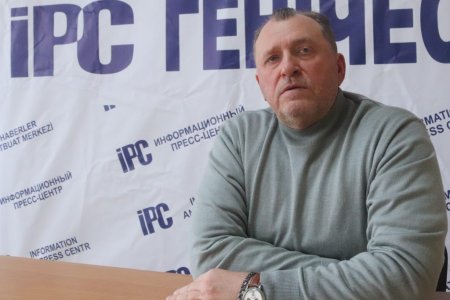
Russia’s Supreme Court has passed yet another politically motivated ruling, declaring a peaceful Ukrainian organization ‘terrorist’ and banning it on the territory of Russia or occupied Crimea. Russia has been imprisoning Crimean Tatars on unproven charges of involvement in this organization since 2018, with the main result of the ruling on 1 June 2022 being to substantially increase the likely sentences passed against men without any semblance of a crime. The move comes as the Russian invading forces are intensifying their abductions of Crimean Tatars and other Ukrainians from parts of the Kherson oblast under occupation. The aggressor state which has been carrying out horrific crimes in all areas where their forces set foot will now be trying to claim that at least some of the civilians it takes hostage are ‘terrorists’.
Despite its name, the Noman Çelebicihan (or ‘Asker’) Battalion is an unarmed civic organization which is perfectly legal in Ukraine. It was founded by Crimean Tatar activist and businessman Lenur Islyamov on 1 January 2016, with the first members people who had taken part in the civic blockade of occupied Crimea. This blockade was initiated by Crimean Tatar leaders Mustafa Dzhemilev and Refat Chubarov, together with Islyamov, on 20 September 2015. They did what the Ukrainian authorities should have done immediately after Russia’s invasion and sought to block any supplies of goods, electricity, etc. There were initially very specific human rights demands, including an end to political repression; to restrictions on the media; and access to international observers.
The Noman Çelebicihan Battalion’s objective is, of course, to end Russia’s illegal occupation of Crimea, but it is certainly not an armed formation. Battalion members merely promoted the goods and energy blockade, and backed Ukrainian border guards in areas near the administrative border with occupied Crimea.
The Russian FSB began arrests on charges of involvement in the Battalion in early 2018, with almost no information ever provided about the individuals taken prisoner. Up till now, the person was charged under Article 208 § 2 of Russia’s criminal code (“taking part in the activities of an illegal armed formation, acting on the territory of a foreign state for purposes which are against the interests of the Russian Federation”). Although claims are generally made that those arrested were trained in using weapons, these are only ever backed by anonymous ‘witnesses’ who may well have never known the person on trial. There was never any recognizable crime, with Russia simply treating the objective to end Russia’s illegal occupation of Crimea as “activities against the interests of the Russian Federation.”
The fact that these activities had purportedly taken place in mainland Ukraine was ignored then. Now Russia has gone much further and is invading and occupying other parts of Ukraine, with these charges having already been used as a pretext for abducting a number of Crimean Tatars and illegally imprisoning them in occupied Crimea.
The Supreme Court ruling was provided in response to an application from the Russian Prosecutor General which begins almost truthfully by stating the role of Mustafa Dzhemilev and Refat Chubarov and that “the battalion was formed in 2015 with the aim of a food, energy, water and other blockades of Crimea”.
In fact, water supplies to occupied Crimea were stopped in April 2014, and proved by far the most painful and unsolvable for the Russian invaders. Long before Russia’s full-scale invasion of Ukraine and occupation of parts of the Kherson oblast, there were warnings that Russia could resort to military force precisely because of the water issue.
Most of the Prosecutor General’s application is untrue, and cannot have been backed by any evidence. It claimed, for example, that the battalion was created as an armed formation, that it has weapons, grenade throwers and drones, and that the aims of its creation were “violation of the territorial integrity of the Russian Federation, and one of its main aims was the armed seizure of Crimea”. Russia violated its territorial integrity by invading and occupying Ukrainian territory, with no democratic country officially recognizing Crimea as anything but Ukrainian territory. The application also claimed that the battalion was actively recruiting Russian citizens.
Russia’s Supreme Court has been used to provide the legal excuse for other forms of political and religious persecution, and has now rubberstamped the use of ‘terrorist’ charges against people who may or may not have taken part in a totally peaceful civilian blockade, no more. The ruling will now mean that the FSB can arrest people on unproven charges of involvement in a peaceful battalion on Ukrainian territory and get them sentenced to 15 or 20 years. Russia has already used similar methods against Muslims in Crimea, especially Crimean Tatar civic journalists and activists, as well as against Jehovah’s Witnesses.
Prior to Russia’s full-scale invasion, there were already six Crimean Tatars serving sentences of up to 10 years’ imprisonment for purported involvement in the Noman Çelebicihan Battalion in mainland Ukraine (Edem Kadyrov; Fevzi Sahandzhy; Dilyaver Gafarov; Nariman Memedinov; Aidyn Mamutov and Medzhit Ablyamitov. The numbers have increased significantly since then, with Russia targeting Kherson oblast residents, including some who have been seized by the Russian invading forces and illegally taken to occupied Crimea.
The following list is almost certainly not exhaustive
Arsen Ibraimov
Russian and occupation media reported on 9 April 2022 that the FSB had detained a Ukrainian citizen, born in 1988, whom it ‘accused’ of being a member of the Noman Çelebicihan Battalion. It was stated that “according to FSB information, the man took an active part in the goods and energy blockade of Crimea, and also in anti-Russian protests in the area of the ‘Chonhar’ checkpoint.”
This was presented as justification for his arrest and now, following the Russian Supreme Court ruling, as grounds for ‘terrorism’ charges.
According to Ibraimov’s lawyer, Alexei Ladin, his client has never been involved in the Battalion.
Rustem Gugurik, a taxi driver from Novooleksiivka (Kherson oblast), was arrested by the FSB on 27 March, when, together with his wife, Viktoria and their 6-year-old daughter, he was at the Chonhar checkpoint planning to enter Crimea. Instead, the Russian FSB ‘border-guards’ seized Gugurik and held his wife and daughter for around 56 hours, without any food, only water.
50-year-old Rustem Gugurik denies any involvement in the Battalion, but did take part in the Crimean Blockade. He stated back in 2016 that he was sure that his involvement in the blockade was the reason why he and his brother, Bekir, were banned from entering occupied Crimea from 2016 to 1 January 2021.
Rustem Osmanov was seized (around 10 April) by Russians who burst into his home in Kalanchak, Kherson oblast. He was illegally taken to occupied Crimea where a Russian-controlled ‘court’ remanded him in custody for two months on the same ‘battalion’ charges.
A fourth Crimean Tatar, 62-year-old Nasrulla Seidaliev is also imprisoned, after being seized by the FSB on the same charge in March 2022.
Another person, as yet unnamed, was seized at the administrative border with Crimea on 30 May.



